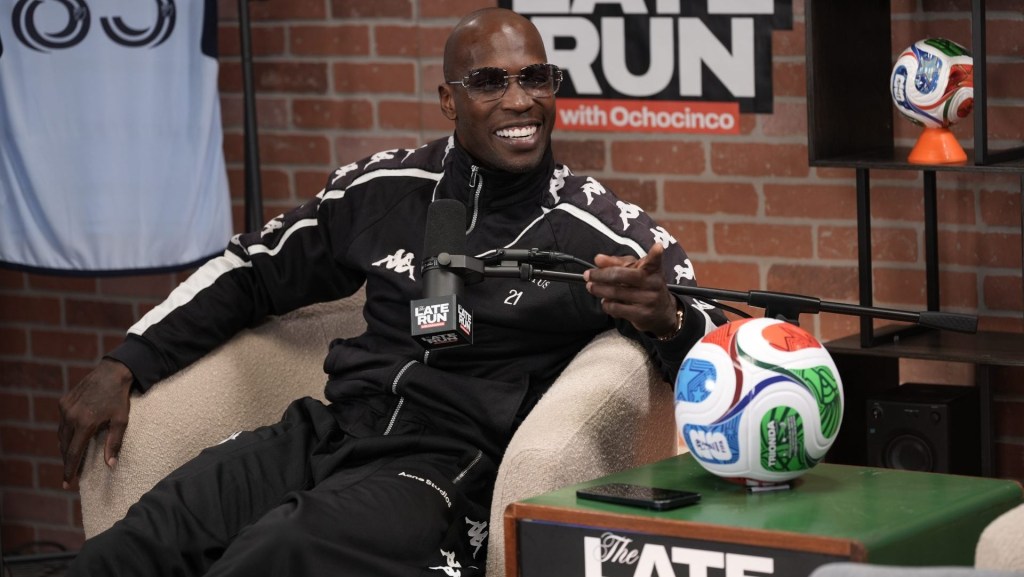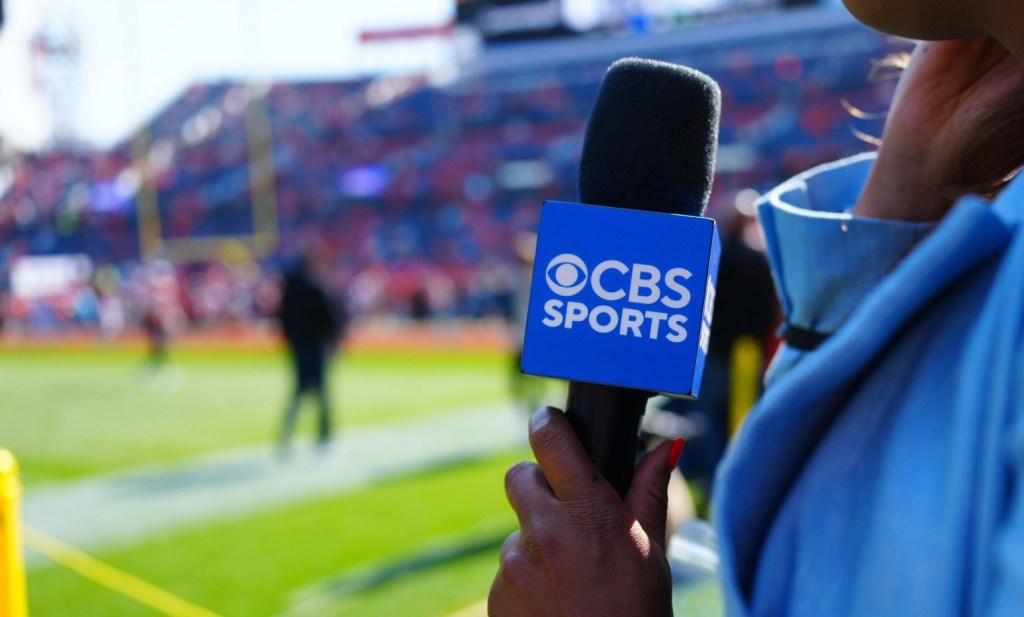MLB commissioner Rob Manfred and ESPN chairman Jimmy Pitaro have two of the most high-profile and demanding jobs in all of sports. That pressure has only escalated in the wake of the momentous decision to end their rights deal three years early, and will go a long way to defining the future course of both executives and their organizations.
The league has already been in the midst of a large-scale reformation of its media rights amid the industry migration toward streaming. By walking away from the $550 million per year deal that ESPN was due to pay MLB for the 2026–2028 seasons, Manfred is now on the hook to show team owners that he can find a deal that gives the league more money, much more exposure, or ideally, both.
In a memo sent Thursday to team owners, the commissioner suggested that could very well be arriving, and potential candidates for a rights deal could include Amazon, NBCUniversal, Netflix, and CBS parent company Paramount. Manfred said he is particularly looking to partner with “a new broadcast and/or streaming platform.”
“We have been in conversations with several interested parties around these rights over the past several months, and expect to have at least two potential options for consideration over the next few weeks,” Manfred wrote.
There is certainly some wind now at the back of Manfred and MLB, coming off a transformative 2024 that has given way to expectations for more growth in 2025. That momentum, in Manfred’s mind, helped make “ESPN’s demand to reduce rights fees simply unacceptable,” according to a league statement.
Several prior MLB rights deals, however, with entities such as Facebook, YouTube, and Peacock—generally deemed as experiments—were not renewed and, ultimately, helped contribute to the current impasse with ESPN.
Bristol Considerations
Pitaro, meanwhile, has his own issues. The Disney-owned network is preparing to debut this summer its direct-to-consumer streaming service, currently called “Flagship,” which is a major corporate priority. Many observers and analysts have long felt that having all four major U.S. men’s pro sports leagues is a vital component of attracting subscribers and reducing churn.
To that end, LightShed Partners said last week that “once [ESPN] made the strategic decision to build a full-year sports streaming service, they not only need the NBA, they need MLB.” Similarly, Pitaro has made it core to ESPN to “serve sports fans. Anytime. Anywhere,” as the network’s mission statement reads—reflected in part by having some type of tie with nearly every major league.
ESPN, however, believes it can bridge the spring and summer months without MLB, if needed. Programming to do that would include NBA and NHL playoffs, the WNBA, NBA Summer League, Little League World Series, and the US Open of tennis, among other events.
Separately, industry sources familiar with Pitaro’s thinking said there are at least three issues with MLB’s internal and external statements. ESPN does not deem this separation “mutual” and believes the network alone initiated the process. Manfred’s assertion to owners that ESPN’s linear reach has fallen to 53.6 million homes does not match with ESPN’s own count of about 67 million.
Network insiders, meanwhile, also questioned the characterization of ESPN as a “shrinking platform,” particularly in the wake of major rights deals struck recently with the likes of the NBA and College Football Playoff.
Pitaro and Manfred spoke Thursday afternoon, not long before the separate announcements of the split, and the door technically remains open for a reunion. Such a development, however, would require a sizable pivot by one or both parties from their current positions.
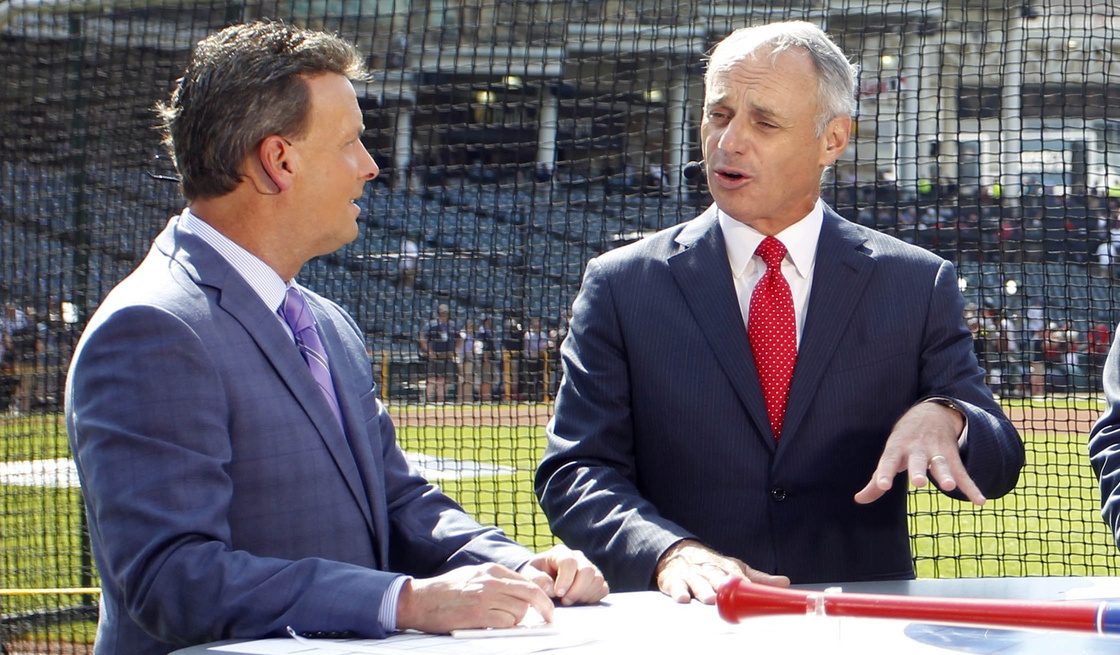
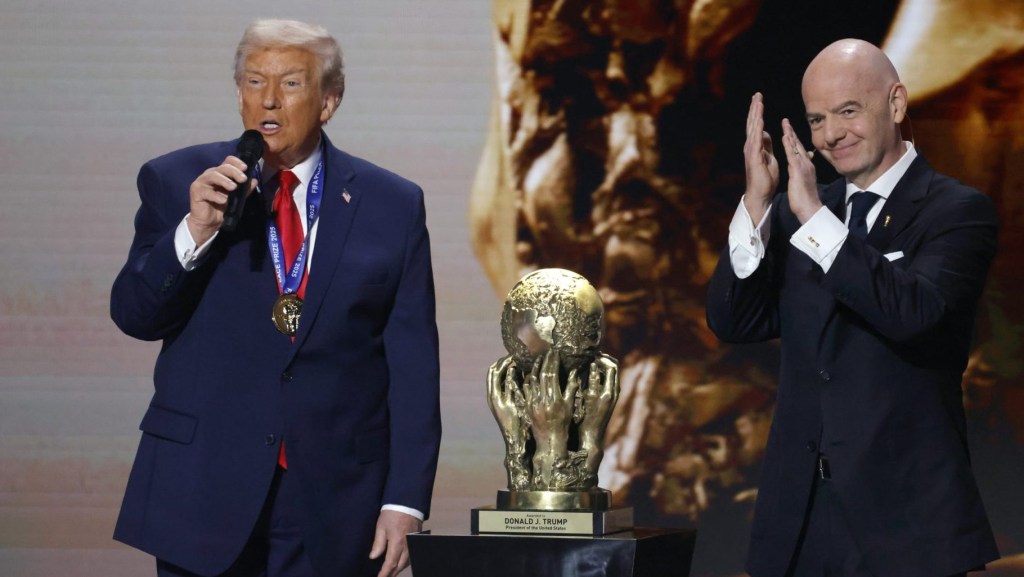


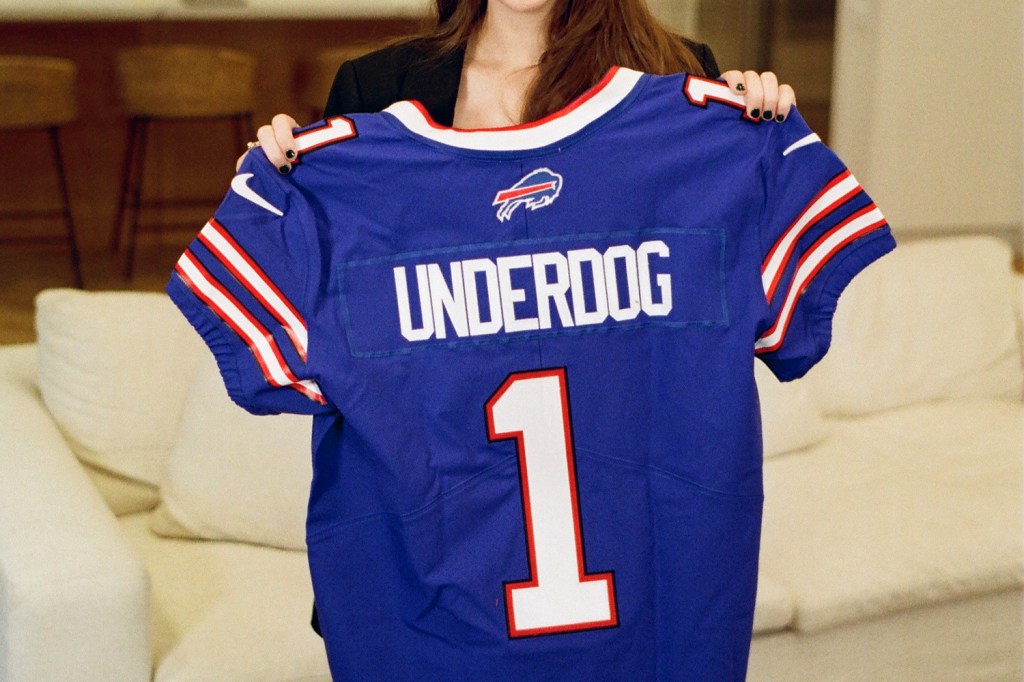

![[Subscription Customers Only] Jun 15, 2025; Seattle, Washington, USA; Botafogo owner John Textor inside the stadium before the match during a group stage match of the 2025 FIFA Club World Cup at Lumen Field.](https://frontofficesports.com/wp-content/uploads/2026/02/USATSI_26465842_168416386_lowres-scaled.jpg?quality=100&w=1024)
![[Subscription Customers Only] Jul 13, 2025; East Rutherford, New Jersey, USA; Chelsea FC midfielder Cole Palmer (10) celebrates winning the final of the 2025 FIFA Club World Cup at MetLife Stadium](https://frontofficesports.com/wp-content/uploads/2026/02/USATSI_26636703-scaled-e1770932227605.jpg?quality=100&w=1024)


